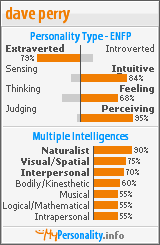They laid this stone trap for him, enticing him with candles, as though he would come like some huge moth out of the darkness to beat there. Ah, he had burned himself before in the human flame and escaped, leaving the reason torn. He will not come any more to our lure. Why, then, do I kneel still striking my prayers on a stone heart? Is it in hope one of them will ignite yet and throw on its illuminated walls the shadow of someone greater than I can understand?
RS Thomas The Empty Church
The imagery and meaning of this famous poem come alive as you stand and look up into the ruined Huby’s bell tower of the church at Fountains Abbey in Yorkshire. Like a stone chrysalis the architecture suggests a presence that is long gone from here; now only emptiness remains. Yet for me the tower becomes a finger pointing back through the pages of the Old Testament to the dark, wild otherness of the God who cannot be tamed, only followed. The God who will not be trapped, confined, caged or domesticated, but who has already escaped the moment the first thoughts of safe captivity form in the mind of one who prefers unthreatening religion to the living God. The empty tower is a warning in stone for the Advent season.
John the Baptist immersed people into the real, wild purposeful presence of the God of the prophets. The God who leads people out of captivity and slavery by the wild route. John offered the God who cannot be tamed, only followed. And what else but God can fill the empty space of the absurd non-fullness that is modern life, that Babel-like human edifice crammed with so many opportunities for illusory fulfilment? The proud intellectual penitentiary of atheistic secularism thinks it has sentenced God to solitary confinement, imprisoned divinity for life behind strong bars of reason and razor wire of patronising superiority, and thrown away the key. Yet the emptiness remains. The yearning within the human spirit does not go away. The poet strikes his prayers on a stone heart, waiting for one of them to ignite. And out there, beyond the neatly planned settlements of our self-satisfaction and pride, beyond the fences of our reason and rationality, far out in the wildness of regret and need, on the rough dusty ground of trust, God delights to meet us face to face. On God’s terms. This is what Advent prepares us for. This is what John the Baptist proclaimed. And this is why the people were drawn to him, to be encountered by the God who cannot be tamed, only followed:
People poured out of Jerusalem, Judea, and the Jordanian countryside to hear and see him in action. There at the Jordan River those who came to confess their sins were baptized into a changed life (Matthew 3:5)








No comments:
Post a Comment